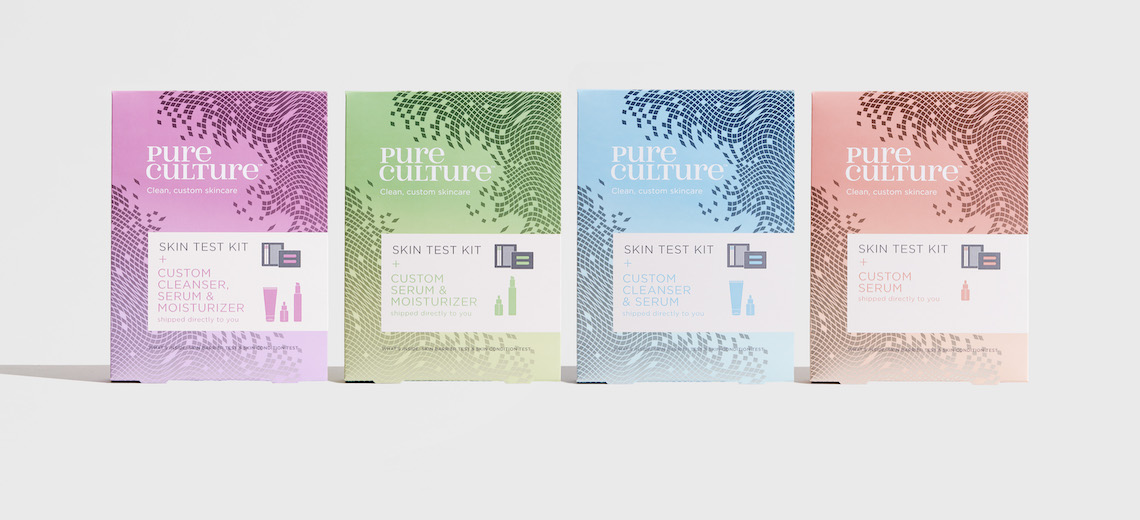The world of DTC customized beauty is making its way further into retail as Pure Culture Beauty launches at Target.
As of January 30, the custom skin-care brand has begun selling its skin test kits at 1,735 Target stores, following an initial soft launch on Target.com. The prices, which are the same as those on the brand’s DTC site, cover the test, as well as a customized serum, a moisturizer and/or a cleanser that can be ordered through Pure Culture Beauty’s DTC site. Once the skin test kit is purchased at Target, the customer performs the test on their face at home, enters the results on the site and receives the custom products in the mail.
The launch comes after Target ventured into customized hair care with its launch of Function of Beauty products in December 2020. The retailer also added personalized vitamins with Care/Of in March 2021.
“We really want to partner with Target, because Target has the audience to take [the customer beauty market] to a more approachable and accessible level,” said Joy Chen, co-founder and CEO of Pure Culture Beauty. “Right now, customization is pretty premium. So we really saw this as an opportunity to bring it to more people.”
Pure Culture Beauty was launched in September 2020 by Chen and MAC Cosmetics alum Victor Casale. Its focus is anti-aging products recommended based on an at-home skin test and survey results. Skin test kits check for skin type, condition and barrier health through paper sheets pressed to the skin.
Since launch, prices have been lowered. Currently, a kit with the skin test and all three products is $59, while a kit with the test and serum alone is $29.
Customization “is pretty crowded and pretty saturated,” said Chen, who noted that there is a market opportunity to reach customers at a more accessible price point.
In the custom skin-care space, custom brand Atolla was acquired by Function of Beauty in August 2021. Meanwhile, the founder of acne-focused Curology launched anti-aging-focused sister brand Agency in February 2021 — both are custom. Following DTC brands’ lead, brands such as SkinCeuticals, Clinique and Kiehl’s have introduced customizable skin-care products.
Ad position: web_incontent_pos1
Personalization was listed as one of the top trends in beauty for 2021 by CB Insights. According to Accenture survey data, 75% of consumers say they are more likely to buy something personalized for them.
The Pure Culture Beauty model at Target differs from that of Function of Beauty’s hair-care system. While Function of Beauty created a set of base hair-care products with ingredient add-on containers that could all be purchased in-store, Pure Culture opted to keep the online component so that users could have the exact same product as DTC customers.
“There have been many brands that are personalized, but they have to change the model for retail to make it work. For us, giving that true customization model at retail was really important so that the model itself could be scalable,” said Chen.
This is Pure Culture Beauty’s second retail partnership, following its online launch with retailer Hudson’s Bay in Canada.
“There’s been a lot of talk about, ‘You can do everything on DTC,'” said Chen. “But I’m a true believer that, in order for brands to accelerate growth, retail partnerships are extremely important.”




